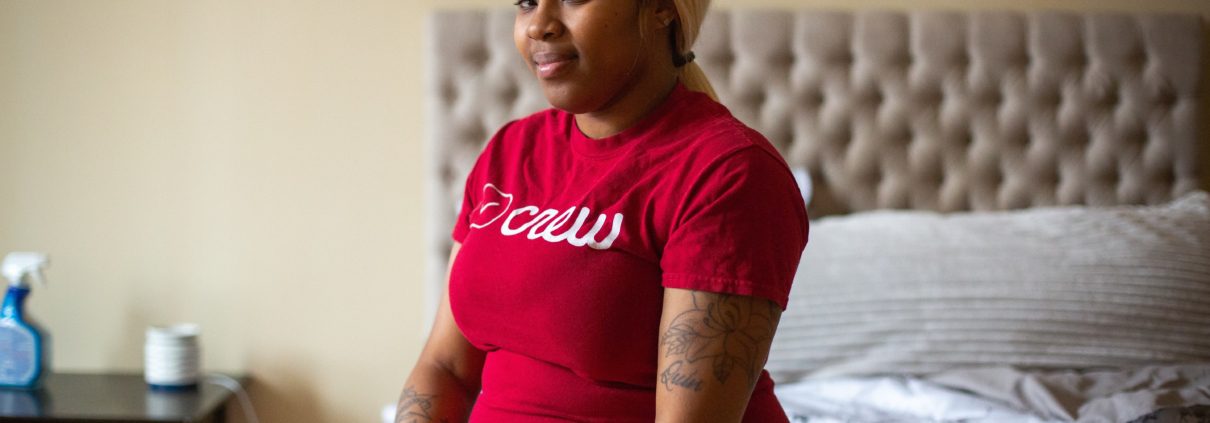Our Work Continues: Supporting Youth as they Age out of Foster Care
For over 150 years, The New York Foundling has worked in partnership with our neighbors to ensure that everyone can meet their full potential when facing challenging situations. This hasn’t changed, and our staff continue to provide life-changing and meaningful support in light of the COVID-19 pandemic. This series shares how The Foundling’s many programs are responding to the needs of their community.
The Foundling’s Supportive Housing Program helps young people aging out of foster care or at risk of homelessness as they learn to care for themselves and build a network critical to their lifelong success. Our Supportive Housing Program operates in Brooklyn and provides personalized support to residents, including counseling and connections to education and employment. Although COVID-19 has changed the landscape, the program’s dedicated specialists and case planners continue to help young people locate resources that provide basic living necessities, educational opportunities, job prospects, and more.
On a regular day, Anthony Beamon Jr. helps young adults apply for jobs and locate educational programs that can prepare them for future success. He edits resumes, assists with budgeting their expenses, points them toward funding sources when necessary, and coaches them toward achieving their goals. “I still do those things, but now it’s all done electronically instead of face-to-face.”
Anthony is an Educational/Vocational Specialist for The New York Foundling’s Supportive Housing Program, which provides housing and social support to 18-26-year-olds who have aged out of foster care or who have experienced homelessness. The program does more than make sure these young people have somewhere to live: it fosters responsibility and paves a path towards independence by enhancing each person’s educational and employment opportunities.
Right now, the future feels especially uncertain for some of these young people. Those who were enrolled in classes or working non-essential jobs pre-COVID-19 feel the virus has been a tremendous impediment to the progress they’d made. “It took the wind right out of their sails,” Anthony said. “But instead of focusing on what’s not available right now, we’re looking at what opportunities this situation creates.”
“I’ve been connecting residents with essential work opportunities. Places like supermarkets, pharmacies, and clinics are all hiring,” Anthony said. “As for educational opportunities, it’s a matter of helping them find programs that have made the shift to online courses and have adapted well.”
Anthony reminds program participants that anxiety over COVID-19 is affecting the whole world and that none of this upheaval is their fault. This can be challenging for young people who have experienced so much upheaval in their lives already. Simultaneously the program works to connect residents with community partners and a coach to ensure they are matched with personalized services based on their individual needs. “If a participant informs us they are running low on benefits [like food assistance], toilet paper, or other resources, I, along with their assigned coach, help them locate resources like a nearby food pantry,” said Anthony. “Community-based services are still open.”
Keeping the program’s participants motivated, empowered, and uplifted during these tumultuous times is our team’s primary goal. Former in-person meetings held on a bi-weekly basis with residents are now conducted electronically and more frequently. “I regularly check-in and let them know that I am there whenever they need me,” Anthony said. “This virus requires us to take things a step further. To be readily available to the young people who need us.”
To learn more about how The New York Foundling is responding to the COVID-19 pandemic in New York, visit our emergency response page. Stay tuned for more stories from the frontlines as we continue to support our neighbors on paths to stability and strength.

